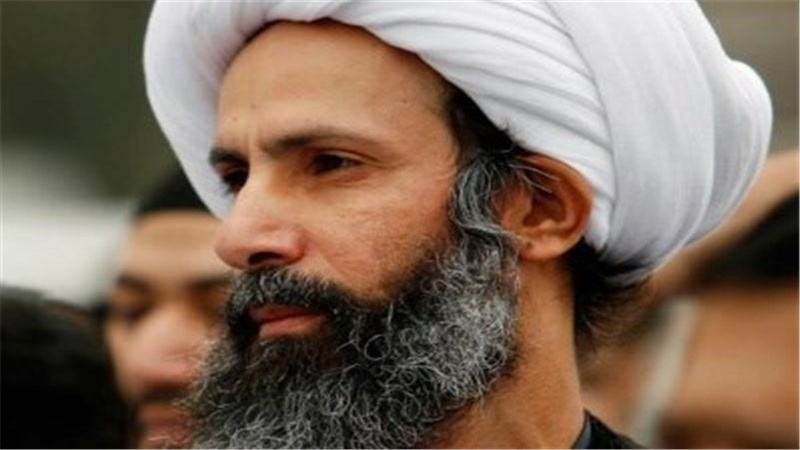Last week, the international community commemorated World Press Freedom Day on 3 May by celebrating the fundamental principles of press freedom. This day is meant to affirm the need for independent media and to raise awareness for journalists targeted simply for doing their job: exercising the right to free expression.
While he was not a journalist, prominent Shia cleric and activist Sheikh Nimr al-Nimr certainly practiced- and suffered- for the right to free expression. Sheikh Nimr’s sermons and speeches drew international attention to ongoing human rights violations in Saudi Arabia, as he dared to publically say what many others only thought. Ultimately, Saudi authorities executed Sheikh Nimr for nothing more than exercising his fundamental freedom as he called for an end to injustice.
Sheikh Nimr was a political and social activist long before the 2011 protests in the kingdom’s Eastern Province. A native of the Awamiyyah village in Qatif, Sheikh Nimr began to peacefully criticize the Saudi government in the 1990s. Following his vocal support for the 2011 demonstrations, he went into hiding for fear of government reprisal. In 2012, Saudi security forces chased, shot, and violently arrested Sheikh Nimr. For the next three years, he endured torture, solitary confinement, and limited access to medical care. Further, the Saudi government violated his due process rights in a trial that breached both international and Saudi law. Saudi authorities marked the New Year by carrying out a mass execution of 47 individuals, including Sheikh Nimr, on 2 January 2016.
The Government of Saudi Arabia has consistently claimed that Sheikh Nimr’s speeches and sermons instigated violence, and therefore violate the kingdom’s laws. Amnesty International undertook a review of these materials, however, and rejected this interpretation, confirming the peaceful nature of his message. Sheikh Nimr stood firm in calling for peaceful reform and denouncing the use of violence and weapons.
Rather, many of the charges the Saudi government brought against Sheikh Nimr, such as “disobeying the ruler,” effectively criminalize free expression, and are in violation of Article 19 of the Universal Declaration of Human Rights (UDHR).
Sheikh Nimr exercised his freedom of expression to speak truth to power, and it was for this that he was prosecuted. Americans for Democracy & Human Rights in Bahrain (ADHRB) has compiled a list of Sheikh Nimr’s sermons that highlight his commitments to peace and human rights. In one of these speeches, while discussing the government’s use of violence to silence dissent, Sheikh Nimr issued a call for non-violent civil disobedience, arguing “the roar of the word is mightier than the sound of bullets.” He emphasized his peaceful approach to reform in other sermons, stating that “no one should use weapons to harm society,” and that “weapons are forbidden” in protests.
Sheikh Nimr’s only crime was his refusal to remain silent as he witnessed ongoing human rights violations in Saudi Arabia. He was a vocal activist who continued to voice criticism of the Saudi government’s discrimination against the kingdom’s minority Shia population. He issued a moral challenge to authority as he asserted, “the power of the right is stronger than the right of power.” Saudi authorities have continued to paint him as a “terrorist” in an effort to undermine his credibility. However, an examination of his activism reveals that Sheikh Nimr was concerned only with expressing his peaceful opposition to government repression.
Mobashra Tazamal is an Advocacy Fellow at ADHRB





